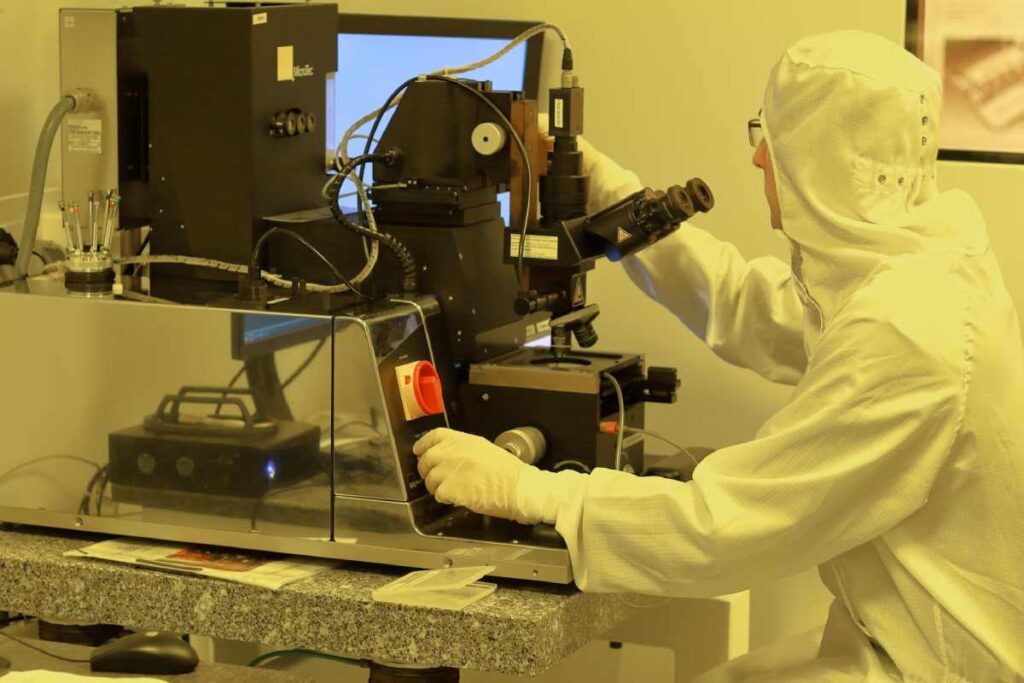Nanotechnology, manipulating matter at the nanoscale, has emerged as a revolutionary field that can transform various aspects of our lives. At the heart of this scientific marvel lies the ability to control and manipulate materials at dimensions smaller than a billionth of a meter. This article delves into the fascinating world of nanotechnology, exploring its applications, impact on different industries, and the ethical considerations surrounding its rapid advancement.
Understanding Nanotechnology:
To comprehend the significance of nanotechnology, it’s essential to grasp the scale at which it operates. A nanometer is one billionth of a meter, roughly the size of 10 atoms lined up. At this scale, the behavior of materials deviates from their macroscopic properties, leading to unique and often unexpected phenomena. Scientists and engineers leverage this behavior to design and create innovative materials and devices with enhanced properties.
Applications in Medicine:
One of the most promising areas of nanotechnology is its application in medicine. Nanomedicine, as it is called, involves the use of nanoscale materials for diagnosis, treatment, and monitoring of diseases. Nanoparticles, for instance, can be engineered to deliver drugs directly to targeted cells, minimizing side effects and improving treatment efficiency. Additionally, nanoscale imaging techniques enable unprecedented visualization of biological structures, facilitating early disease detection.
Electronics and Nanotechnology:
The electronics industry has witnessed a transformative impact due to advancements in nanotechnology. The miniaturization of electronic components has allowed the development of smaller and more powerful devices. Nanoscale transistors, integrated circuits, and memory storage have paved the way for creating faster and more energy-efficient electronic gadgets. As a result, consumers now enjoy smaller, lighter, and more powerful devices with improved performance.
Energy and Environment:
Nanotechnology has the potential to address pressing energy and environmental challenges. Nanostructured materials are being explored for more efficient energy storage and conversion. For instance, nanomaterials in batteries can enhance their capacity and lifespan. Additionally, nanocatalysts play a crucial role in improving the efficiency of various industrial processes, reducing energy consumption and environmental impact.
Challenges and Ethical Considerations:
While the promises of nanotechnology are exciting, addressing the challenges and ethical concerns associated with its rapid development is essential. The potential toxicity of specific nanomaterials raises concerns about their bearing on human health and the environment. Ethical considerations regarding the responsible use of nanotechnology, possible misuse, and unintended consequences also come into play.
Future Prospects:
Looking ahead, nanotechnology holds vast potential for further innovation and breakthroughs. Researchers are exploring new frontiers such as nanorobotics for targeted drug delivery, nanosensors for real-time disease monitoring, and even the development of nanoscale computing devices. The interdisciplinary nature of nanotechnology, combining physics, chemistry, biology, and engineering, opens up new avenues for collaboration and discovery.
Conclusion:
Nanotechnology is undeniably reshaping the way we approach scientific and technological challenges. Its applications in medicine, electronics, energy, and the environment illustrate its versatility and potential impact on various industries. However, as we navigate this tiny world with big potential, it is crucial to tread carefully, addressing ethical considerations and ensuring the responsible development and application of nanotechnology for the benefit of humanity. As we unlock the mysteries of the nanoscale, the possibilities for innovation and improvement in our daily lives are seemingly boundless.

